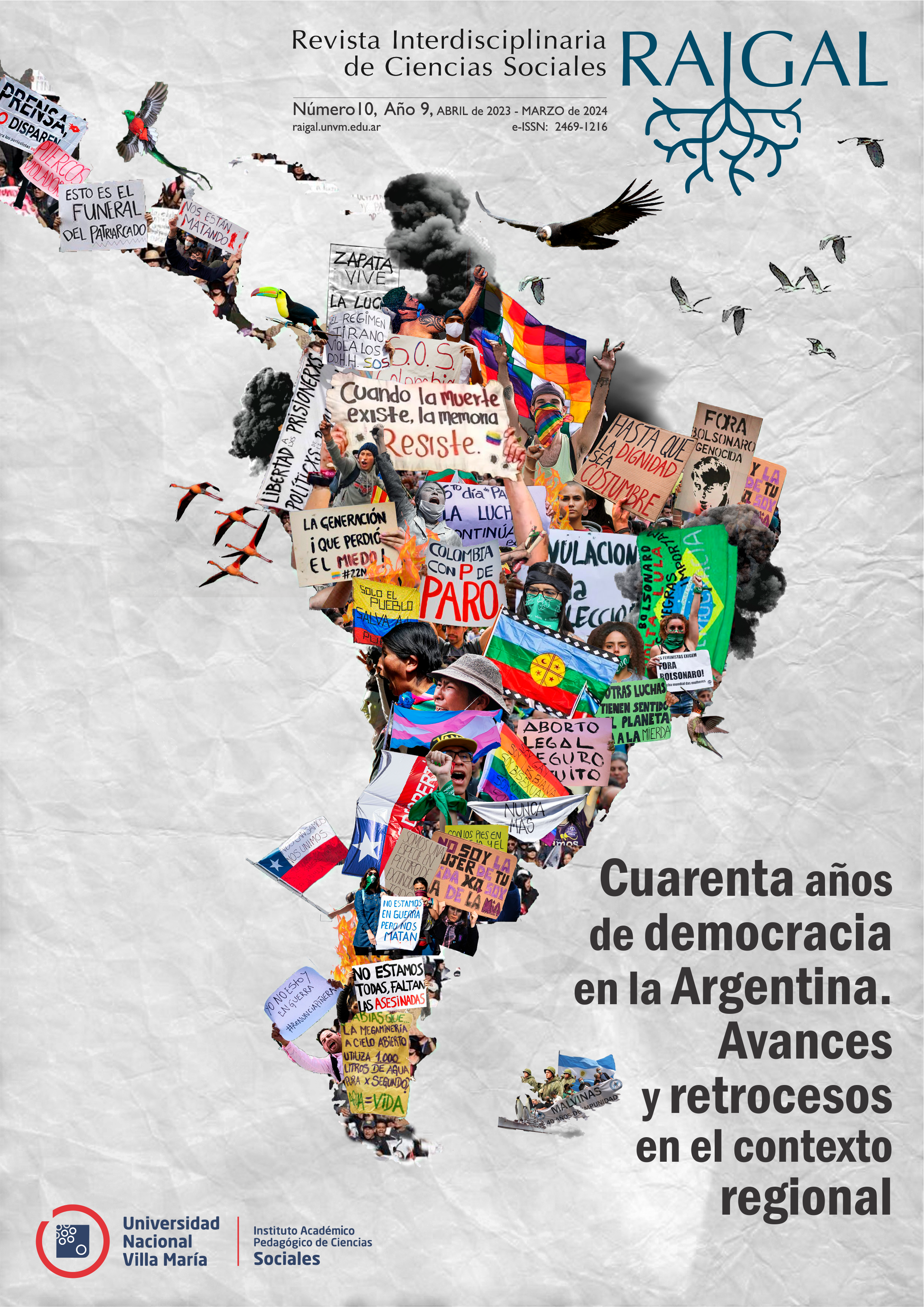40 years of democracy in Argentina: political parties
Abstract
In the work we develop the main characteristics that Argentine political parties and the party system they make up currently present and how they have been changing since the beginning of the current democratic period. We start from the characterization of party behaviors prior to 1983, that is, the antecedents of the current democratic period. Secondly, we focus on the political parties themselves, developing their origins, their electoral strengths, their social support and their ideological-programmatic positioning. Next, we analyze the different configurations that our party system has assumed since 1983 to date to, finally, focus on the main trends that can be identified in its transformation.
Keywords:
democracy, political science, political parties, electoral system, political ideologyLicense
Copyright (c) 2024 Juan Manuel Abal Medina

This work is licensed under a Creative Commons Attribution 4.0 International License.
Downloads
References
Abal Medina, Juan Manuel (2019). “Gobiernos y gobernantes de la República Argentina”, en PostData, Vol. 24, No1.
Abal Medina, Juan Manuel y Julieta Suárez Cao (2002). “La competencia partidaria en la argentina: sus implicancias sobre el régimen democrático”, en Cavarozzi, Marcelo y Juan Abal Medina (eds.), El asedio a la política. Los partidos latinoamericanos en la era neoliberal, Rosario, Homo Sapiens.
Calvo, Ernesto y Juan Manuel Abal Medina (2001). El federalismo electoral argentino, Buenos Aires: EUDEBA.
Degiustti, Danilo y Gerardo Scherlis (2020). "Desandando caminos. Reequilibrio de fuerzas y alternancia en el sistema partidario argentino 2015-2019", en Revista Colombia Internacional, No 103.
Di Tella, Torcuato (1998). Los partidos políticos. Buenos Aires: A-Z editora.
Gibson, Edward y Julieta Suárez Cao (2010). “Federalized Party Systems and Subnational Party Competition: Theory and an Empirical Application to Argentina”, en Comparative Politics, Vol. 43, Nº 1.
Han, Byung-Chul (2022). Infocracia. La digitalización y la crisis de la democracia. Taurus, Buenos Aires. Argentina.
Levitsky, Steven (2003). Transforming labor-based parties in Latin America. Argentine peronism in comparative perspective. Cambridge University Press.
Malamud, Andrés y Miguel De Luca (2016). “¿Todo sigue igual que ayer? Continuidad y ruptura en el sistema de partidos argentino (1983-2015)”, en Flavia Freidenberg (comp.), Los sistemas de partidos en América Latina (1978-2015), Ciudad de México: UNAM.
Ostiguy, Pierre (2009). “Argentina’s double political spectrum: party system, political identities, and strategies, 1944–2007”. Kellogg InstituteWorkingPaper, Nº 361.
Torre, Juan Carlos (2017). Los huérfanos de la política de partidos revisited. Revista SAAP: Sociedad Argentina de Análisis Político, 11(2), 241-249.
Vomaro, Gabriel, Morresi, Sergio y Alejandro Belloti (2015). Mundo PRO: anatomía de un partido fabricado para ganar, Planeta






 We are indexed ...
We are indexed ...





